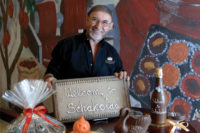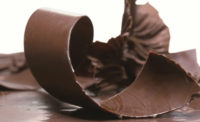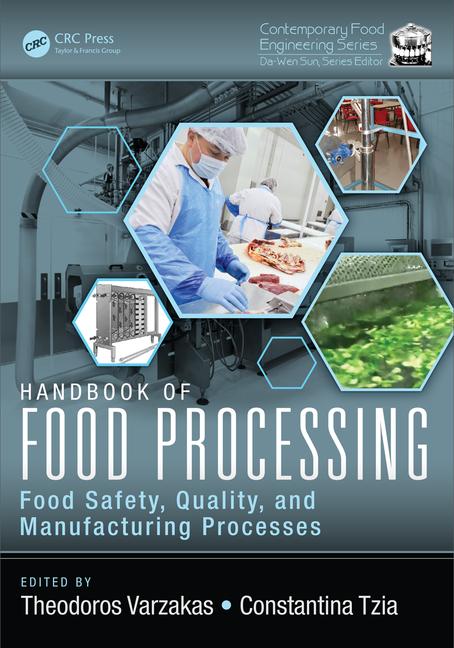When Birol Altinkilic decided to create a cocoa processing company in 1992, he did so knowing the risks involved. After all, despite having traded cocoa beans with his father and then on his own, it’s a far cry from being a middle man to a manager of manufacturing.
Altinkilic, however, believed the timing was right. The Turkish government’s ongoing efforts to liberalize the economy offered an opportunity to get in at the ground level. In addition, given his contacts in cocoa bean trading, Altinkilic had relationships with cocoa bean suppliers as well as cocoa bean users.
As for the challenge of actually turning cocoa beans into cocoa mass, the answer was straightforward: technology.
“I could see Turkey’s economic development moving forward,” he explains. “I also recognized the importance of technology. To deliver a quality product, the company would use the best machines, the best technology in conjunction with the best cocoa beans. And we would continue to invest in the business.”
Twenty years later, that philosophy has turned the Altinmarka Group into the world’s sixth largest cocoa products and second largest industrial chocolate producer. Revenues for the Istanbul-based company, which today include sales from its finished chocolates subsidiary, Detay Cos., as well as its coffeehouse retail units and coffee roasting, ice cream and bakery/pastry facilities, are expected to reach $600 million this year.
It also garnered him Europe’s most prestigious accolade: the European Candy Kettle Club Award.
None of this, however, happened overnight. In fact, it took two years before the Altinmarka Group finished construction of its first facility and began producing cocoa liquor, cocoa butter and cocoa powder in 1994. Capacity that year reached 10,000 tons.
Gradually, Altinkilic pursued small and midsized producers in Turkey and neighboring countries, building up a customer base that catered to family-run businesses. A combination of determination and discipline helped Altinkilic expand his niche, in essence growing his business in conjunction with these family businesses. In doing so, he also simultaneously established footholds with national and multinational clients.
And it was in 2005 when the company reached that critical “next level.”
“In addition to cocoa products, we began producing chocolate liquor, couvertures, chocolate chips, coins, bars, everything that small and large chocolate producers needed; today the plant has the capacity to turn out 150,000 tons,” he explains.
That turning point quickly evolved into another opportunity — finished chocolate products. In 2008, the company established a separate subsidiary, Detay, to produce a broad range of chocolate items — everything from bars and pralines to enrobed Turkish delights and moulded pieces.
The 116,250-sq.-ft. (10,800 sq. meters, two floors) facility features manual and automated panning lines, enrobing and forming lines and moulding lines for chocolate balls and bars. It also has an artisan kitchen area where handcrafted truffles and specialty items — such as macaroons — are produced. Currently the plant is producing 45,000 tons of chocolate annually.
Detay, which is run by Altinkilic’s daughter, Dilara, provides a critical compliment to the Altinmarka Group. As Birol says, several customers on the cocoa and industrial chocolate products side require occasional support with finished products.
“Our clients, especially during Christmas and Valentine’s holidays, come to us for help,” Dilara explains. Those clients today encompass both multinationals as well as family businesses, retailers as well as foodservice clients.”
Thus, it’s not unusual for Detay, which means “detail” in Turkish, to co-manufacture items for the likes of Ferrero, Nestlé, Unilever and Cadbury while subsequently supplying boxed chocolates to retail chains across the Middle East.
Detay also produces all of the chocolates sold in the company’s coffeehouse chain, Kahve Dünyasi (it means “Coffee World” in Turkish), which now has 90 outlets in Turkey. Products range from hazelnut paste chocolate pieces to handcrafted truffles.
The coffeehouse chain, established in 2004, has grown incredibly fast, a testament to Birol’s knack for seeing an opportunity and seizing the moment. The coffeehouses, which are not only supplied by Detay with chocolate products, but with pastries/breads, coffee and ice cream from Altinmarka Group’s other subsidiaries, serve as a chocolate proselytizing vehicle, educating and converting Turkish consumers to the delights of fine chocolate.
“We want to educate the Turkish people about good quality chocolate,” says Birol. “In the past, Turks were consuming compound chocolate. They are turning to real chocolate now.”
Moreover, as Birol points out, Turkey’s general population skews younger. The coffeehouse environment, which offers free Wi-Fi and modestly priced food offerings such as pastries and sandwiches — all sourced from Altinmarka — provide the company with an opportunity to develop a longstanding relationship with Turkey’s most influential consumer group.
Birol, however, recognizes that to ensure continued growth for Altinmarka, the company must pursue export opportunities as well. Currently, the company sells its cocoa and chocolate products to more than 40 countries. It continues to aggressively pursue new customers with a tried and true strategy: excellent quality made affordable by the latest technology.
“To compete in today’s competitive climate, you need economies of scale, which requires reaching critical volumes,” he says.
To capture that volume, Birol relies on the Altinmarka Group ‘s competitive edge — its ability to accommodate customer demands quickly while continuously providing support, be it technical, strategic or financial.
For example, Birol follows the commodity markets closely. Consequently, he doesn’t hesitate to advise his clients on making “the right moves.”
In addition, as a family business, the company is poised to make decisions quickly. Given Birol’s track record in recognizing opportunities, there’s no hesitancy in working with customers to take advantage of marketplace shifts.
“We can definitely provide ‘fast solutions,’ since we have a streamlined decision-making process,” Dilara says. “We’re also in a position of offering financial support as well as research and development services.”
Birol also points out that many midsized companies will be seeking other suppliers besides the three or four multinationals presently covering the globe.
“Companies like ours will provide options for such companies,” he says.
To ensure that the Altinmarka Group remains capable of competing against multinationals and aggressive regionals, Birol continues to rely on technology and annual investments, investments that total $50 million annually. A tour of the company’s various facilities, be it the cocoa or chocolate processing plants or the Detay finished chocolate products facility, underscores that commitment.
In the cocoa processing area, the company processes 200 tons of cocoa beans daily 24/7, 360 days a year (there are five days in the year when the facility is shut down). The 1,722,226-sq.-ft. (160,000 sq. meters) cocoa processing facility handles incoming cocoa beans with two lines that clean, roast, winnow, shell and grind the beans before they’re alkalinized and sterilized for additional processing. Each line can produce 50 tons of cocoa liquor daily.
Depending upon the need, the cocoa liquor is pumped toward different segments of the facility, whether it’s to create liquid chocolate, chocolate couverture, solid bars, chips, coins or pieces or to be converted into cocoa butter and powder.
Eight cocoa presses separate the cocoa liquor into cocoa butter and large cocoa cakes. The cocoa butter is piped into a deodorization station, which removes colors and flavors. The cakes are crushed, cooled and then ground to produce cocoa powders. Both the cocoa butter and cocoa powder are pumped toward separate work areas, where they are packaged in 25-kilo cartons for shipment.
On the chocolate processing side, stored cocoa liquor is pumped into mixing units that first combine dry ingredients, such as milk powder and cocoa powder, followed by liquid ingredients, primarily cocoa butter and cocoa liquor. The thoroughly mixed mass then goes to a pre-refiner, which creates a paste consisting of 150-micron sized particles.
The mixture is then conveyed toward a series of four five-roll refiners, which further reduces the particle size down to 25-30 microns. At this point the dry powder heads toward one of eight conching units. Typically conching lasts between 6 to 8 hours, depending upon the recipes.
At Altinmarka, there are four distinct chocolate processing lines: milk chocolate, dark chocolate, white chocolate and compound chocolate. Monthly output reaches 10,000 tons. The plant also houses lines that produce chocolate drops and coins as well as a dedicated line for crushed chocolate pieces.
As one might expect, the Detay manufacturing facility, which was built in 2008, also emphasizes automation and technology. Because of its customer-centric nature, the facility has several distinct processing lines, ranging from manual and automatic bulk panning to forming and moulding lines.
For example, to produce filled round truffles, Detay has two double-shot lines feeding a host of twist-wrapping machines. Output from these lines can reach 1,200 kilos daily. A forming/enrobing line turns out the popular Chocolata hazelnut paste chocolates while a robotized moulding line focuses on producing pralines at a rate of 7 to 10 tons daily. A bank of twist-wrap packaging machines handles all requirements for foil-wrap products.
Finally, the company has 40 pans on hand for dragee production, supplemented by two — a third is on its way — automated panning units.
Technology, nonetheless, can’t by itself deliver quality. Hence, throughout Altinmarka, there’s a fanatical devotion to quality assurance and control.
“The quality of chocolate depends on a large number of separate parameters and is an extremely complex process that needs constant supervision, control and fine-tuning,” Dilara says. “At the point where a product leaves our factory, it will have undergone 16 separate quality checks. But it is ultimately our customers’ satisfaction that is the only quality test that counts.”
Given the company’s annual growth rate of 15%, Altinmarka seems to be meeting that test. It’s also committed to maintaining that pace, Birol asserts.
“Within four to five years, we’re looking to reach $1 billion in revenues,” he says. That projection foresees continued expansion for Detay and for Kahve Dünyasi. This year, the company looks to convert an existing warehouse into a Detay production facility.
Plans also call for another 110 coffee shops to be opened by 2015, bringing the total to 200. Currently the company has one coffee shop based outside of Turkey in London. Its success has prompted plans for additional shops in Europe and the United States.
“We are looking at Berlin, New York, Boston, Dubai,” he says. “People in Europe, the United States are looking for different tastes and we think that our shops can provide them with that.”
Given Birol’s track record, odds are he’s right.
Altinmarka Group
Headquarters:Istanbul
Sales: $600 million
Products: Cocoa liquor, cocoa butter, cocoa powder, industrialized chocolate products, finished chocolate products
Entities:Altinmarka — cocoa and chocolate processing division; Detay — finished chocolate products division; Altinkiliclar Kahve Kakao (Kahve Dünyasi) — coffeehouses; Baylan — pastries and baked goods; Altinkiliclar Gıda — coffee grinding, roasting, packing; Altinkiliclar Kahve Kakao (Kahve Dünyasi) — ice cream, bread, pastry; Altinyapi — internal construction company.
Employees: 2,000
Cocoa and chocolate products output: 240,000 tons
Management team: Birol Altinkilic, chairman; Dilara Altinkilic, general manager – Detay Cos.





